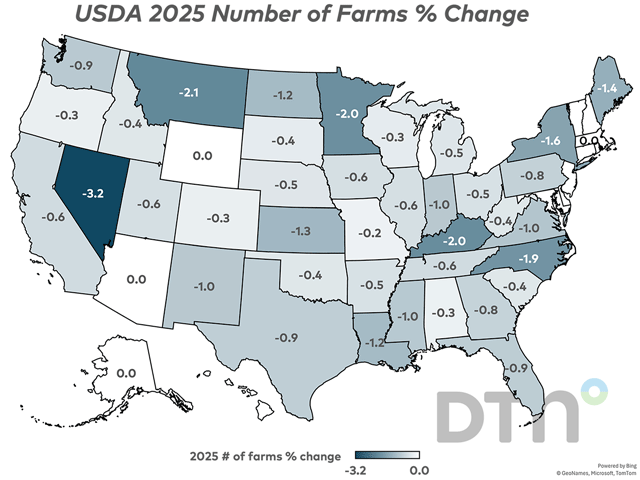Stocks Slip, Tech Extends Slump
NEW YORK (AP) -- Technology companies suffered another day of sharp losses Thursday, although the broader market didn't fare as badly.
Chipmakers sank after an executive from KLA-Tencor said business in the fourth quarter looks weaker than the company expected. Apple also fell, and social media companies continued to sink after Congressional hearings weighed on the stocks the day before.
"They have a target on their back," said Karyn Cavanaugh, senior markets strategist at Voya Investment Management.
The S&P 500 index shed 10.55 points, or 0.4 percent, to 2,878.05. The Nasdaq composite fell 72.45 points, or 0.9 percent, to 7,922.73. The Russell 2000 index of smaller-company stocks declined 13.18 points, or 0.8 percent, to 1,714.47.
However industrial companies and high-dividend stocks rose, which limited the market's losses. The Dow Jones Industrial Average rose 20.88 points, or 0.1 percent, to 25,995.87 as Boeing, 3M and United Technologies headed higher.
Apple fell 1.7 percent to $222.10 and KLA-Tencor lost 9.7 percent to $107.28. Facebook gave up 2.8 percent to $162.53 and Twitter slid 5.9 percent to $30.81, and Google's parent company, Alphabet, declined 1.3 percent to $1,183.99. Those companies took similar losses Wednesday.
The Nasdaq, which has a high concentration of technology companies, is down 2.3 percent this week. But for the second day in a row, big losses for technology companies and for Amazon, the second-largest U.S. company, were partly canceled out by gains elsewhere.
Cavanaugh, of Voya Investment Management, said investors are still optimistic about the U.S. economy, which has helped other stocks.
"They know the underlying fundamentals are good," she said. "Company earnings are not turning tail (and running away) because of the trade wars and all of the political drama."
P[L1] D[0x0] M[300x250] OOP[F] ADUNIT[] T[]
Technology companies outperformed the broader S&P 500 in each of the past four years and they are doing it again this year. Cavanaugh said the companies have posted very strong profits at a time global economic growth has been slow, and investors will probably continue to find that appealing.
Bond prices turned higher. The yield on the 10-year Treasury note fell to 2.87 percent from 2.90 percent. That made big dividend payers including utilities and household goods makers more appealing, and their stocks rose.
No major trade developments emerged during the trading hours. The U.S. and Canada continued negotiations to keep Canada in an updated version of the North American Free Trade Agreement.
The U.S. could put a 25 percent tax on $200 billion in Chinese goods after a public comment period on the proposal expired Thursday, and media reports have said the tariffs could be announced this week. China has vowed to retaliate.
The U.S. and China have put taxes on $50 billion in imports in the last few months, but larger tariffs would represent a major escalation in their dispute.
CBS jumped after the Wall Street Journal reported that the TV network and its parent company are in talks to settle a lawsuit. As part of that settlement, National Amusements would give up on its bid to merge CBS with Viacom, which it also controls.
CBS's board and shareholders opposed the merger, and its stock gained 3.2 percent to $54.62. Viacom dipped 0.6 percent to $29.25.
The Journal also reported that Les Moonves, CBS' longtime CEO, is negotiating with the board of directors about a possible exit. In July, he was accused in a New Yorker article of sexually harassing six women.
Moonves acknowledged he made advances that may have made some women uncomfortable, but he denied allegations he threatened the careers of some of the women afterward.
While the U.S. economy has gained strength this year, investors are worried that rising interest rates and trade disputes will harm fast-growing, but often fragile, economies elsewhere. The currencies of Argentina, Turkey and Iran have all hit record lows recently and Venezuela's currency has lost almost all its value.
While those countries face different problems, the Federal Reserve's interest rate increases affect all of them by driving up their debt costs and making U.S. assets more attractive. Investors are responding by pulling money out of emerging markets, and that's exposed financial vulnerabilities.
Some investors fear that big losses in some developing markets could ripple out into the global financial system, as they did in the late 1990s, when several Asian countries eventually required financial rescue.
Oil prices fell for the second day in a row. Benchmark U.S. crude shed 1.4 percent to $67.77 a barrel in New York. Brent crude, used to price international oils, lost 1 percent to $76.50 a barrel in London.
Wholesale gasoline slid 0.7 percent to $1.95 a gallon. Heating oil slumped 1.1 percent to $2.21 a gallon. Natural gas gave up 0.8 percent to $2.77 per 1,000 cubic feet.
Gold rose 0.2 percent to $1,204.30 an ounce. Silver fell 0.3 percent to $14.18 an ounce. Copper gained 1 percent to $2.64 a pound.
The dollar dipped to 110.83 yen from 111.51 yen. The euro edged up to $1.1625 from $1.1623.
Germany's DAX fell 0.7 percent and in Britain the FTSE 100 lost 0.9 percent. The CAC 40 in France gave up an early gain finished 0.3 percent lower.
Japan's benchmark Nikkei 225 lost 0.4 percent and the Kospi in South Korea dropped 0.2 percent. Hong Kong's Hang Seng tumbled 1 percent.
(BE)



